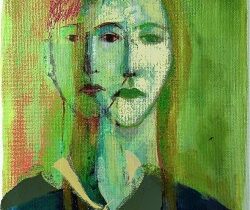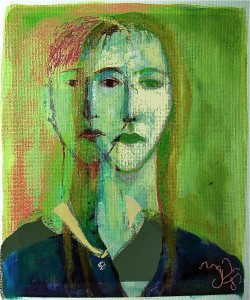Beyond the Gender Wars: on Being Towards the Image of God
Many of the biggest controversies in churches today are related to gender & sexuality. Can women take positions of church government? Is homosexual marriage acceptable for Christians? Should church leaders be celibate or married? These questions are enormously important, and any position which thinks that the answer to any of them is ‘obvious’ is blind to the complexities involved. But amidst the debates and arguments, shibboleths and boundary-drawing, it is easy to miss something. Any answer to these questions implies a view of human personhood and what it means to be created in God’s image, and the implications have a massive impact, far beyond the issues themselves, on our sense of identity and dignity as human beings.
Instead of starting our exploration of gender by deciding what we think about the controversial questions, I want to suggest that we should start at the other end. Let’s explore what it means to be fallen human beings who are slowly being restored into the image of the One who created us. Maybe when we have a fuller grasp of the Christian view of personhood, the answers to controversial questions will naturally fall into place as part of a bigger perspective.
If we rush to answer the boundary-questions (“Is X permitted or not?”) without first thinking carefully about sexuality and identity more broadly, our deeper conceptions of these things will be unconsciously adopted from the culture around us. We won’t have no conceptions, we will just have those given to us by adverts, Hollywood, and pop music. Those things will shape how we see human nature at the level of our imagination. Then, the Christian view (what the Bible/Church/local pastor says, or doesn’t say) may feel irrational, contrary to human nature, rather than being a loving invitation to rediscover our humanity. What’s really at stake is how we picture the contrast between who we are now, with all our desires, brokenness and prejudices, and who we were created to be.
I think we should ask questions like the following.
What does it mean to have desires (e.g. for status, acceptance, satisfaction, food, sex)? Are desires inherently bad? Should we squash any desires we find inside ourselves, seeing them as distractions from our duty to serve God? Or instead, does repressing desire lead to psychological damage? I believe that embedded in the Christian tradition we can find a complex, nuanced view of desire as a diamond-in-the-rough, a resource that can bring great joy and power but only once disciplined and channelled to the right ends.
What does it mean specifically to long for intimacy? Is romantic love the best solution to this longing? What does it mean if a married person does not find the intimacy they were looking for in marriage? What does it mean for someone with this longing to remain single their whole life? More broadly, how should both single and married people understand their status as human beings in relation to each other?
What does it mean to take spiritual leadership? Does it mean having power over others, or serving them, or both? Does a spiritual leader in some way represent God to the people they are leading? If so, does God need representation by both genders or just one? Is leadership an inherently masculine thing even if a woman does it?
These questions may themselves be biased towards certain answers. But the point isn’t that these are the only right questions. The point is that pursuing questions like these is the answer to our current disagreements. We desperately need careful thinking, honest truth-seeking, and gracious listening in regard to these questions before we will make progress answering the “hot topic” boundary questions. We need to build a robust theological anthropology that is neither subject to the whims of the age nor uncritically accepting of past assumptions.
For further reading I’d recommend following the ongoing investigation by Matthew Lee Anderson, whose line of research has begun the way I am outlining.((His former article here is also excellent)) I’m also grateful to Eva for raising the essential philosophical questions in a previous post. Finally, having recently heard Sarah Coakley lecture on the subject, I expect great insights from her new book, The New Asceticism: Sexuality, Gender and the Quest for God.
What these resources have in common is that instead of answering controversial questions directly, they look at the fears, longings, hopes and common-sense assumptions behind the questions. Instead of pronouncing an authoritative judgement on the way things should be, they start by a vision of humans as created in God’s image and worthy of dignity. As we grow in wisdom and understanding, and as the debate grows more heated and divisive, we must pray we will never lose sight of that vision.
Barney
Latest posts by Barney (see all)
- The Nicene Creed: “One Church” - July 14, 2016
- The Nicene Creed: “…for us and for our salvation…” - June 24, 2016
- Pacifism and Politics: The Tank and the Letter - May 3, 2016


